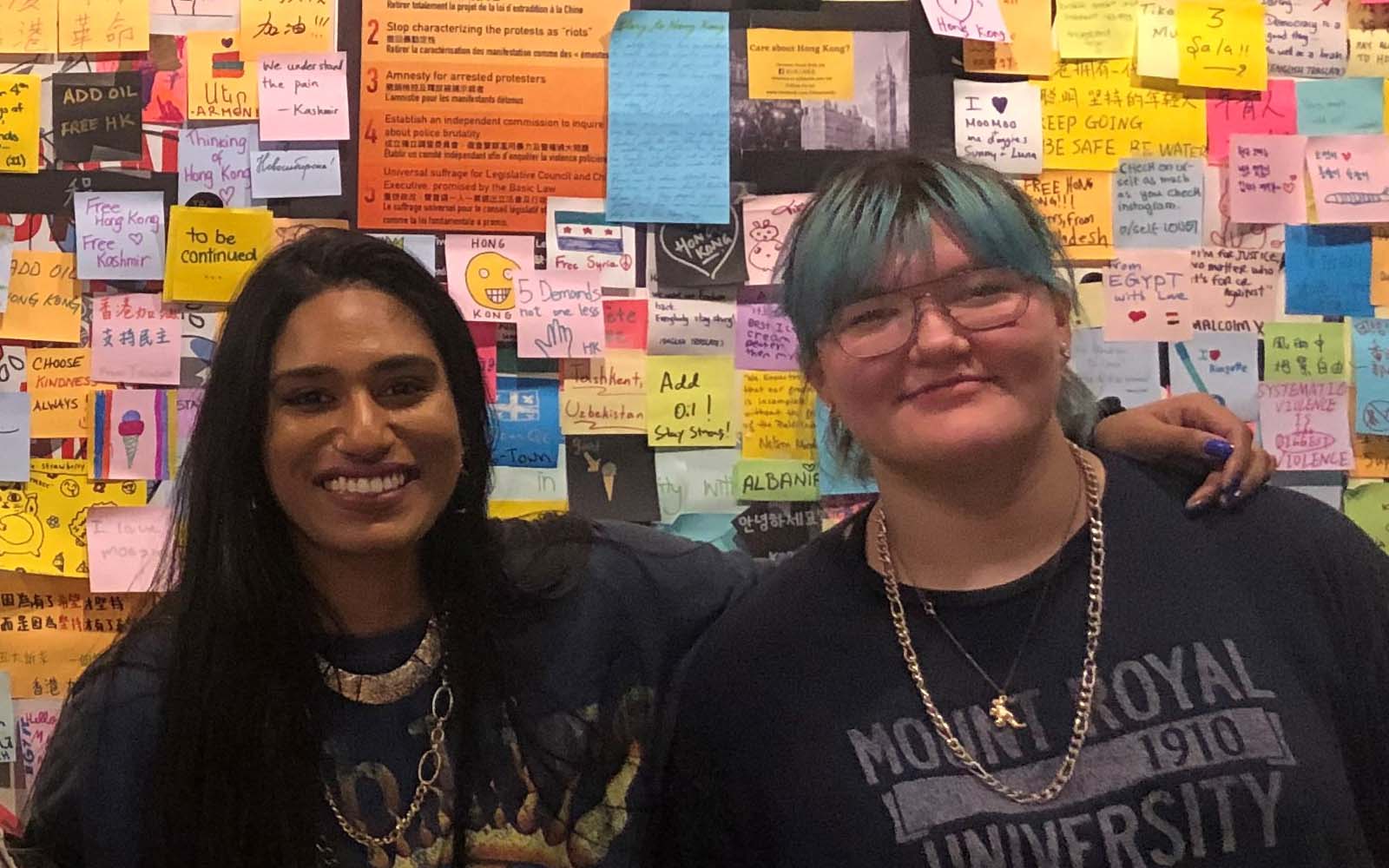Embracing the rich culture and resilient communities in Canada’s north
Story

Niroja volunteered with Cuso International as part of her postgraduate studies, working as an Education Assistant in Fort Providence, Northwest Territories. Despite her initial feelings of isolation, she quickly fell in love with the community and plans to continue working alongside the youth and leaders. Niroja tells us about her experience in this interview.
Tell us about Fort Providence.
Fort Providence is without a doubt one of the most beautiful places I’ve ever been to. Despite temperatures dropping below -40 in the winter, I find there is a warmth amongst the community who have welcomed me with open arms. It lies along the banks of the gorgeous Mackenzie River and it’s not unusual to see herds of bison roaming around the town or even grazing on your front lawn. The Dene and Metis population of the community are proud of their culture and are resilient despite the intergenerational trauma in Fort Providence resulting from the establishment of a residential school and fur trading post in the 1860s. Although there are a lot of differences between the North and the South, rest assured that the students in Fort Providence love TikTok, rap music, and anime just as much as students anywhere else today!
What stands out as the most memorable experience from your placement?
I had the opportunity to go out on the land for several days with students and community leaders. Completely removed from the world with no reception or modern technology, we set snares for trapping, did ice-fishing, observed a buffalo hunt and the preparation of the meat, and ultimately expressed gratitude for the land we were on. In this environment, I saw the students excel. They were the leaders and I looked to them for guidance. It was incredible to see their confidence on the land while I certainly struggled! It was a beautiful and humbling experience and I’m grateful that they taught me so much.
What was most challenging about your volunteer experience and how did you overcome it?
Living in Canada’s North can be extremely isolating and difficult. The luxuries I had in Toronto like movie theatres, shopping malls, large grocery stores, restaurants, and even Wi-Fi at home are nonexistent in Fort Providence. I’m grateful for the other volunteers who routinely checked in on me and proved to be a strong support network. I also focused all my spare time on strengthening my bonds with the youth in town via volunteering at the youth centre or helping with community events and feasts. They became like my family and I even earned the endearing nickname, “grandma” amongst all the younger kids (which has led to some awkward moments when they’re with their families and yell out “grandma!” when they see me around town). This love and sense of community quickly replaced the initial feelings of isolation.
How did your placement impact the students?
My position as an Education Assistant gave me the chance to see the Northern Distance Learning (NDL) program succeed in Fort Providence. The inaugural course was art for high school students. This was the first time these students were offered a high school level art course and it quickly became apparent that there was real talent and interest. I was able to bond with these students in a more intimate classroom setting and encourage their artistic abilities. I saw student’s confidence grow as they worked to create beautiful art. We were able to listen to music while they worked on their art and shared stories with each other which helped solidify our bonds. One grade 12 student came to me and shared her desire to apply to art school. I worked with her after school for weeks to help her prepare her art portfolio and go through the complicated and unfamiliar process of university applications. I’m thrilled to say that she was successful in all her applications and she’ll be attending Alberta University of the Arts!
Why did you choose to volunteer with Cuso International in Canada’s North?
I was impressed with Cuso International’s emphasis on partnership and empowerment with partners taking control of their own development. I appreciated the extensive application and training process and the fact that Cuso International didn’t just impose a volunteer onto a community, but rather took the time to allow the community-volunteer relationship to develop right from the beginning by providing the community an opportunity to get to know the volunteer before making a decision.
During my post-grad experience, I was able to learn more about the true indigenous historical context in Canada. I didn’t want to look at Northern Canada as a place of tragedy. I wanted to learn more about the resistance efforts and resilience of indigenous communities while unlearning any stereotypes or false narratives that I’ve been taught. I wanted to experience firsthand the rich diverse culture of indigenous communities so that I could bring a powerful counter-narrative back to the South.
Photos
Niroja (left) with a student, Fort Providence, Northwest Territories